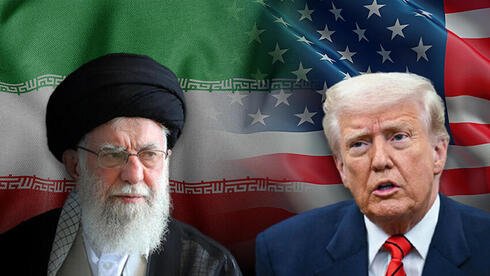
US Issues Ultimatum to Iran: Nuclear Talks on the Brink as Sunday Deadline Looms
The United States has issued a stern warning to Iran, stating that ongoing nuclear negotiations could come to an abrupt halt if the upcoming meeting on Sunday fails to yield productive results. This latest development marks a critical moment in the long-standing efforts to restore the 2015 nuclear deal, formally
The United States has issued a stern warning to Iran, stating that ongoing nuclear negotiations could come to an abrupt halt if the upcoming meeting on Sunday fails to yield productive results. This latest development marks a critical moment in the long-standing efforts to restore the 2015 nuclear deal, formally known as the Joint Comprehensive Plan of Action (JCPOA).
According to senior U.S. officials, the Biden administration has expressed growing frustration over what it perceives as Tehran’s lack of seriousness and constructive engagement in recent rounds of talks. With the clock ticking, Washington has made it clear that if Iran continues to stall or present unrealistic demands, the negotiations may be called off altogether. The potential collapse of these talks could have far-reaching implications, both for regional stability and global nuclear non-proliferation efforts.
The Sunday meeting, described as a make-or-break moment, is expected to bring together representatives from Iran, the United States, and other key stakeholders, including European powers that played a significant role in brokering the original 2015 accord. U.S. officials have emphasized that the primary objective remains clear: to bring Iran back into compliance with the nuclear agreement by curbing its uranium enrichment activities and providing verifiable assurances that it will not develop nuclear weapons.
The JCPOA, which was initially negotiated under the Obama administration, placed stringent limits on Iran’s nuclear program in exchange for the lifting of international economic sanctions. However, the deal was thrown into disarray when former President Donald Trump unilaterally withdrew the U.S. from the agreement in 2018, reinstating harsh economic sanctions on Tehran. In response, Iran gradually abandoned its commitments under the deal, increasing its stockpile of enriched uranium and advancing its nuclear capabilities.
Efforts to revive the JCPOA resumed in 2021 after President Joe Biden took office, with U.S. diplomats engaging in indirect talks with Iranian counterparts in Vienna. While some progress has been made, significant gaps remain, particularly concerning Iran’s insistence on the full lifting of all sanctions and guarantees that a future U.S. administration will not renege on the agreement once more. U.S. negotiators have maintained that while they are open to a fair and balanced agreement, they will not yield to excessive demands that go beyond the original framework of the JCPOA.
In recent weeks, U.S. officials have expressed mounting concerns that Iran may be deliberately prolonging the talks while continuing to expand its nuclear program. According to reports from the International Atomic Energy Agency (IAEA), Iran has enriched uranium to levels far exceeding the limits set by the JCPOA, raising alarms about the potential for weaponization. The Biden administration has warned that time is running out, as Iran’s advancements could soon render the original deal obsolete.
Tehran, however, has pushed back against these assertions, accusing the U.S. of bad faith and pointing to Washington’s withdrawal from the agreement as the root cause of the current crisis. Iranian leaders have called for concrete guarantees that the U.S. will not unilaterally exit the deal again in the future. They also seek the removal of all Trump-era sanctions, including those not directly related to Iran’s nuclear activities, arguing that the sanctions continue to stifle their economy despite recent diplomatic efforts.
Diplomats close to the negotiations have described the atmosphere as tense, with both sides showing signs of fatigue and dwindling patience. European mediators, who have been instrumental in facilitating the dialogue, are reportedly urging both parties to show greater flexibility and commitment to finding a middle ground. However, the sense of urgency has heightened in recent days, with Washington signaling that it will not wait indefinitely for a breakthrough.
Analysts warn that if the talks fail on Sunday, it could lead to heightened tensions in the Middle East, where Iran’s regional rivals, including Israel and Saudi Arabia, have voiced strong opposition to any perceived concessions to Tehran. Israel, in particular, has maintained a hardline stance, warning that it may take unilateral action if it perceives an imminent nuclear threat from Iran.
The broader international community is watching closely, as the outcome of these negotiations could influence global energy markets and impact international security dynamics. The prospect of the U.S. reimposing or intensifying sanctions could further isolate Iran and complicate efforts to address other regional conflicts, including in Syria and Yemen, where Iranian influence remains significant.
With Sunday fast approaching, all eyes are on Vienna, where the fate of the nuclear deal hangs in the balance. Both sides have much to gain from a resolution but also risk significant fallout if the talks collapse. For the Biden administration, success would mean a diplomatic victory and a step towards stabilizing the Middle East. For Iran, rejoining the JCPOA could unlock economic relief and pave the way for improved international relations.
Yet, the path to agreement remains fraught with challenges. Political pressure within both countries complicates the prospects for compromise, and the lingering distrust from past negotiations continues to cast a shadow over the process. As the clock ticks down, it remains to be seen whether the U.S. and Iran can bridge their differences or if Sunday’s meeting will mark the end of a pivotal chapter in nuclear diplomacy.
Share this post
Related Posts

“America Lowkey Not It”: DDG’s Nigeria Safety Claim Sparks Global Debate on Perception, Reality, and the Search for a Better Life
American rapper and streamer Darryl Dwayne Granberry Jr., popularly known as DDG, has ignited a...

Journalism or Jousting? OAP Dotun Sparks Debate Over Rufai Oseni and Seun Okinbaloye’s Interview Styles
Nigerian On-Air Personality, Dotun, has sparked an intense online debate after publicly weighing in on...

Elon Musk’s Feminism Comment Sparks Global Debate on Family, Power, and the Future of Gender Politics
A familiar cycle played out once again on social media this week when Elon Musk,...